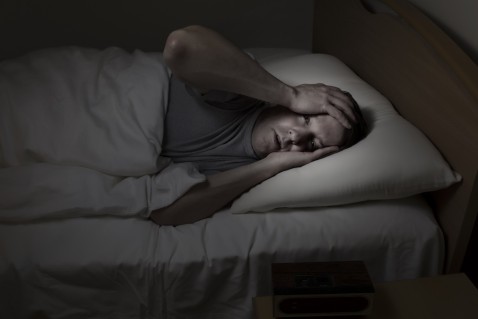
Comparing Sleep After Alcohol With Natural Sleep
The authors recruited 24 drinkers aged 18 to 21, equally split between genders, and used electroencephalogram (EEG) recordings to investigate the impact alcohol has on sleep. The participants were classified as social drinkers, having consumed fewer than seven drinks (of typical size and strength) per week over the preceding month. For the study, they each underwent two conditions, sleep after drinking alcohol and sleep after no alcohol (where they were given a placebo drink instead), enabling researchers to look at the difference in the sleeping patterns after drinking for each individual. In particular, the researchers were interested in the impact alcohol has on slow wave sleep, which is generally thought to reflect the quality of sleep, although its precise role is still a topic of debate. The study focused on college students because existing evidence shows that sleep EEG readings—particularly delta waves—reduce significantly throughout the teen years, when many are first trying alcohol, and into early adulthood.
Alcohol Starts as a Sedative, Then Disturbs Sleep
The results showed that slow wave sleep (SWS) delta power increased during non-rapid eye movement (non-REM, meaning non-dream) sleep after consuming alcohol, but frontal alpha power also increased. Co-author of the study, Christian L. Nicholas from the University of Melbourne, explained that, “Increases in SWS, which traditionally would be interpreted as a good thing, can be associated with more subtle changes indicating disrupted sleep, such as the increases we observed in alpha activity, which are revealed when more detailed micro-structural components of the sleep electroencephalogram are assessed.” Nicholas says that the increases in alpha-delta activity observed after alcohol consumption likely represent the normal sleep patterns being disturbed. He says that such changes have been associated with un-refreshing sleep and have been previously recorded in patients with chronic pain issues. Nicholas summarizes that, “The take-home message here is that alcohol is not actually a particularly good sleep aid even though it may seem like it helps you get to sleep quicker. In fact, the quality of the sleep you get is significantly altered and disrupted.”
Alcoholism and Reduced Sleep Quality: An Additional Negative Effect
Along with the negative effects of drinking on the liver and many other parts of the body, not to mention the psychological consequences (and causes) of addiction, the study joins other recent research in suggesting that alcohol negatively impacts ordinary sleep. Previous research has indicated that drinking alcohol to get to sleep interferes with sleep homeostasis, which is the body’s mechanism for regulating sleepiness and wakefulness, and the same study also showed that alcohol withdrawal can have the same effect. This may be the reason that insomnia-like symptoms are common when people stop drinking: after long periods of frequent drinking, people often go to sleep as they ordinarily would, but wake up a few hours later and are unable to go back to sleep. These findings are particularly important because around one in five U.S. adults drinks alcohol for the purpose of going to sleep. In short, alcohol’s apparent sleep-promoting effect is only part of the story—during the first half of the night, it may indeed benefit sleep, but as the night continues, the negative effects begin to dominate. For long-term drinkers or alcoholics, the prolonged negative effect on sleep may be causing many issues in waking life, such as continued adverse impacts on learning and memory. In fact, it may be a contributing factor in many of the negative psychological impacts of continuous drinking, making ordinary day-to-day functioning more of a challenge.
Drinking to Go to Sleep Is Counterproductive
If you’re ever struggling to go to sleep and are tempted to relapse to drinking to help you rest, remember that the evidence shows that this is precisely the wrong thing to do. During withdrawal, you may especially struggle with insomnia-like symptoms, but going back to drinking will only make things worse. Remaining abstinent from alcohol will give your sleep patterns a chance to return to normal, re-establishing homeostasis and providing the undisturbed sleep you’re looking for. If you have a long-term problem with going to sleep, talking to a doctor or therapist may be beneficial. Drinking definitely isn’t the answer.
